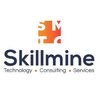Prepare for Your Probox Solutions Interview with Real Experiences!
View interviews5 Probox Solutions Jobs

IT Engineer
Probox Solutions
posted 3+ weeks ago
Job Role Insights
Fixed timing
Key skills for the job
Job Description
- Provide on-site technical support to end-users and customers, resolving hardware, software, and network issues promptly and effectively.
- Install, configure, and troubleshoot computer systems, peripherals, software applications, and network devices.
- Diagnose and resolve hardware and software problems related to desktops, laptops, printers, and other IT equipment.
- Ensure the proper functioning and maintenance of IT equipment and infrastructure at client locations.
- Assist in setting up and configuring new computer systems and devices for end-users.
- Collaborate with the IT team to identify recurring issues and recommend improvements in IT processes and systems.
- Train end-users on the proper use of hardware, software, and other IT resources.
- Ensure compliance with IT policies, security protocols, and data protection regulations.
- Document technical procedures, solutions, and troubleshooting steps for reference purposes.
- Manage and prioritize support tickets and service requests using a ticketing system.
- Coordinate with third-party vendors for the resolution of complex technical issues.
- Stay updated with the latest IT trends and technologies to provide proactive support and recommendations.
- Proven experience as an IT Support Technician, Help Desk Technician, or similar role.
- Strong technical knowledge of computer hardware, software applications, and network systems.
- Familiarity with operating systems, such as Windows, macOS, and Linux.
- Experience in troubleshooting hardware, software, and network issues.
- Excellent communication and interpersonal skills to effectively interact with end-users and customers.
- Ability to work independently, prioritize tasks, and meet deadlines.
- A customer-centric approach and a commitment to providing high-quality technical support.
- Strong problem-solving and analytical skills.
- Knowledge of IT security practices and data protection principles.
- Certifications such as CompTIA A+, Microsoft Certified Professional (MCP), or other relevant IT certifications are a plus.
- Availability to travel and work on-site at client locations as required.
Employment Type: Full Time, Permanent
Read full job description
What people at Probox Solutions are saying
What Probox Solutions employees are saying about work life
Similar Jobs for you
IT Engineer
0-1 Yrs
Mumbai
Computer Networking, Linux Administration, Air Ticketing +6 more
Team Lead
2-5 Yrs
Mumbai
Biochemistry, Medical Billing, Operations +7 more
IT Co-Ordinator
0-1 Yrs
Mumbai
Customer Service, Hospital Administration, Windows System Administration +5 more
Business Development Executive
3-4 Yrs
Mumbai
Cyber Security, Salesforce, Microsoft Power BI +5 more
Product Executive
2-6 Yrs
Mumbai
Cyber Security, Artificial Intelligence, Social Media Marketing +6 more



























